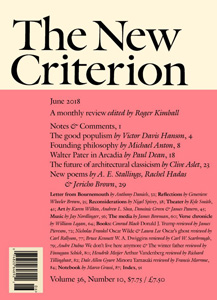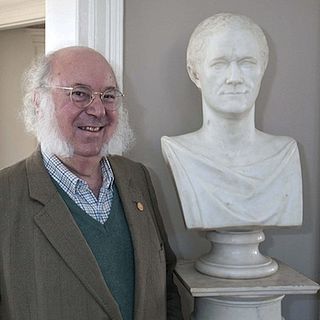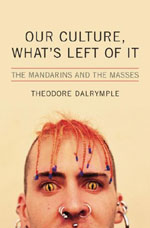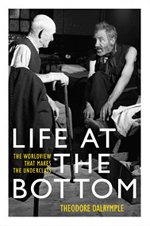
Free will is the notional capacity or ability to choose between different possible courses of action unimpeded.

Determinism is a philosophical view, where all events are determined completely by previously existing causes. Deterministic theories throughout the history of philosophy have developed from diverse and sometimes overlapping motives and considerations. The opposite of determinism is some kind of indeterminism and even more so nondeterminism. Determinism shares similarities with eternalism with a focus on particular events rather than the future as a concept entirely. Determinism is often contrasted with free will, although some philosophers claim that the two are compatible.

William James was an American philosopher, historian, and psychologist, and the first educator to offer a psychology course in the United States. James is considered to be a leading thinker of the late 19th century, one of the most influential philosophers of the United States, and the "Father of American psychology".

Thomas Sowell is an American economist, author, and social commentator who is a senior fellow at the Hoover Institution. With widely published commentary and books—and as a guest on TV and radio—he became a well-known voice in the American conservative movement as a prominent black conservative. He was a recipient of the National Humanities Medal from President George W. Bush in 2002.

A worldview or a world-view or Weltanschauung is the fundamental cognitive orientation of an individual or society encompassing the whole of the individual's or society's knowledge, culture, and point of view. A worldview can include natural philosophy; fundamental, existential, and normative postulates; or themes, values, emotions, and ethics.
Fatalism is a family of related philosophical doctrines that stress the subjugation of all events or actions to fate or destiny, and is commonly associated with the consequent attitude of resignation in the face of future events which are thought to be inevitable.

The New Criterion is a New York–based monthly literary magazine and journal of artistic and cultural criticism, edited by Roger Kimball and James Panero. It has sections for criticism of poetry, theater, art, music, the media, and books. It was founded in 1982 by Hilton Kramer, former art critic for The New York Times, and Samuel Lipman, a pianist and music critic. The name is a reference to The Criterion, a British literary magazine edited by T. S. Eliot from 1922 to 1939.

Anthony Malcolm Daniels, also known by the pen name Theodore Dalrymple, is a conservative English cultural critic, prison physician and psychiatrist. He worked in a number of Sub-Saharan African countries as well as in the East End of London. Before his retirement in 2005, he worked in City Hospital, Birmingham and Winson Green Prison in inner-city Birmingham, England.

The underclass is the segment of the population that occupies the lowest possible position in a class hierarchy, below the core body of the working class.

Roger Kimball is an American art critic and conservative social commentator. He is the editor and publisher of The New Criterion and the publisher of Encounter Books. Kimball first gained notice in the early 1990s with the publication of his book Tenured Radicals: How Politics Has Corrupted Higher Education.
Peter van Inwagen is an American analytic philosopher and the John Cardinal O'Hara Professor of Philosophy at the University of Notre Dame. He is also a research professor of philosophy at Duke University each spring. He previously taught at Syracuse University and earned his PhD from the University of Rochester in 1969 under the direction of Richard Taylor. Van Inwagen is one of the leading figures in contemporary metaphysics, philosophy of religion, and philosophy of action. He was the president of the Society of Christian Philosophers from 2010 to 2013.
In philosophy, moral responsibility is the status of morally deserving praise, blame, reward, or punishment for an act or omission in accordance with one's moral obligations. Deciding what counts as "morally obligatory" is a principal concern of ethics.
The philosophy of technology is a sub-field of philosophy that studies the nature of technology and its social effects.

Myron James Magnet is an American journalist and historian. He was the editor of City Journal from 1994 to 2007. His latest book, Clarence Thomas and the Lost Constitution, was published in 2019 by Encounter Books.
Pattiann Rogers is an American poet, and a recipient of the Lannan Literary Award for Poetry. In 2018, she was awarded a special John Burroughs Medal for Lifetime Achievement in Nature Poetry.

Spoilt Rotten: The Toxic Cult of Sentimentality is a non-fiction book by the British writer and retired doctor and psychiatrist Theodore Dalrymple, originally published in 2010. Polemical in nature, the book contends that sentimentality has become culturally entrenched in British society, with harmful consequences. The author uses a range of cultural, educational, political, media and literary issues—including falling standards in education, UK aid policies for African development, the death of Diana, Princess of Wales, the disappearance of Madeleine McCann, and the work and life of Sylvia Plath—to illustrate what he sees as the danger of abandoning logic in favour of sentimentality, which he describes as "the progenitor, the godparent, the midwife of brutality". Much of Dalrymple's analysis is underpinned by his experience of working with criminals and the mentally ill.

Our Culture, What's Left of It: The Mandarins and the Masses is a 2005 non-fiction book by British physician and writer Theodore Dalrymple. It is composed of twenty-six separate pieces that cover a wide range of topics from drug legalisation to the influence of Shakespeare. A common theme is criticism of modern society in Great Britain and, in many articles, social attitudes towards literature. The book was published by the Ivan R. Dee group. He generally describes British culture as a "moral swamp" and writes that the people must return to past traditions before it is too late.
Environmental theology pertains to "the God-environment relationship and divine expectations of human behavior in relation to the environment".
Social determinism is the theory that social interactions alone determine individual behavior.

Three Essays on Religion: Nature, the Utility of religion, and Theism is an 1874 book by the English philosopher John Stuart Mill, published posthumously by his stepdaughter Helen Taylor, who also wrote the introduction. It is made up of three essays: "Nature" and the "Utility of Religion", were both written between 1850 and 1858, while "Theism" was composed between 1868 and 1870. The book is critical of traditional religious views, instead advocating for a "religion of humanity".












